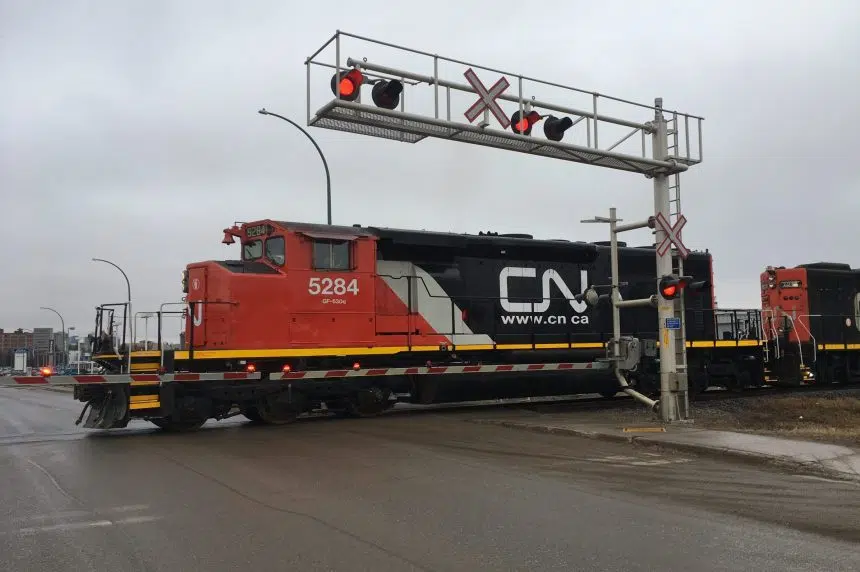While he didn’t explicitly call for CN workers to be ordered back on the job, Saskatchewan Agriculture Minister David Marit said he wants to see the labour dispute resolved by the end of the week.
If that doesn’t happen, he said he’ll be calling on the federal government to act.
“We would encourage the parties to get back to the bargaining table and come to a quick resolve and if they don’t come to a quick resolve, we’d hope the federal government would take some action,” Marit told reporters on Tuesday.
Marit was pressed for what that action would entail, whether that would include back-to-work legislation.
“It could mean that. I would hope the federal government would intervene in it and hopefully come to a quick resolve for both parties to agree on,” he said.
About 3,200 Canadian National Railway workers — including conductors, train operators and yard workers — started striking Tuesday morning. The union said members have safety concerns with long hours and fatigue. Workers have been without a contract since July 23.
The strike comes as farmers are trying to move their crops to market but Marit said the service disruption also affects the energy, potash and forestry sectors.
“We also have to be really concerned about our country’s reputation in delivering product to other countries. It’s been at stake before and it could be at risk again,” he said.
On Monday, Marit was among three provincial ministers to co-sign a letter addressed to federal MPs Patty Hajdu and Marc Garneau that stressed how Saskatchewan’s export-driven economy relies on access to world markets.
The letter also urged the federal government to intervene and end the dispute in the event of a work stoppage.
“Our producers cannot afford to fall even further behind in their deliveries due to a potential labour disruption,” the letter read. “The competitors we face in offshore markets will not hesitate to take advantage of such difficulties and even a minor labour disruption will result in lost contracts, shutdowns, lost revenues and reduced tax revenues to the Governments of Canada and Saskatchewan.”
According to the Western Grain Elevator Association, half of the grain elevators in the prairies rely solely on CN rail lines to move goods.
The group also said this is a key time of year while producers are trying to cash in on higher prices for Canadian grains and oilseeds.
“We want to move as much grain as we can between October and March, because that’s when the world is paying a premium for Canadian grains and oilseeds. If we have to push sales outside of that period, then we can’t command as high of a premium for them,” said executive director Wade Sobkowich.
— With files from 980 CJME’s Lisa Schick and Evan Radford, and The Canadian Press







